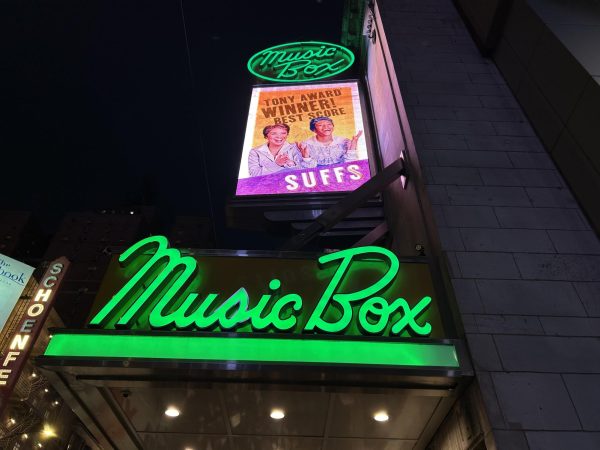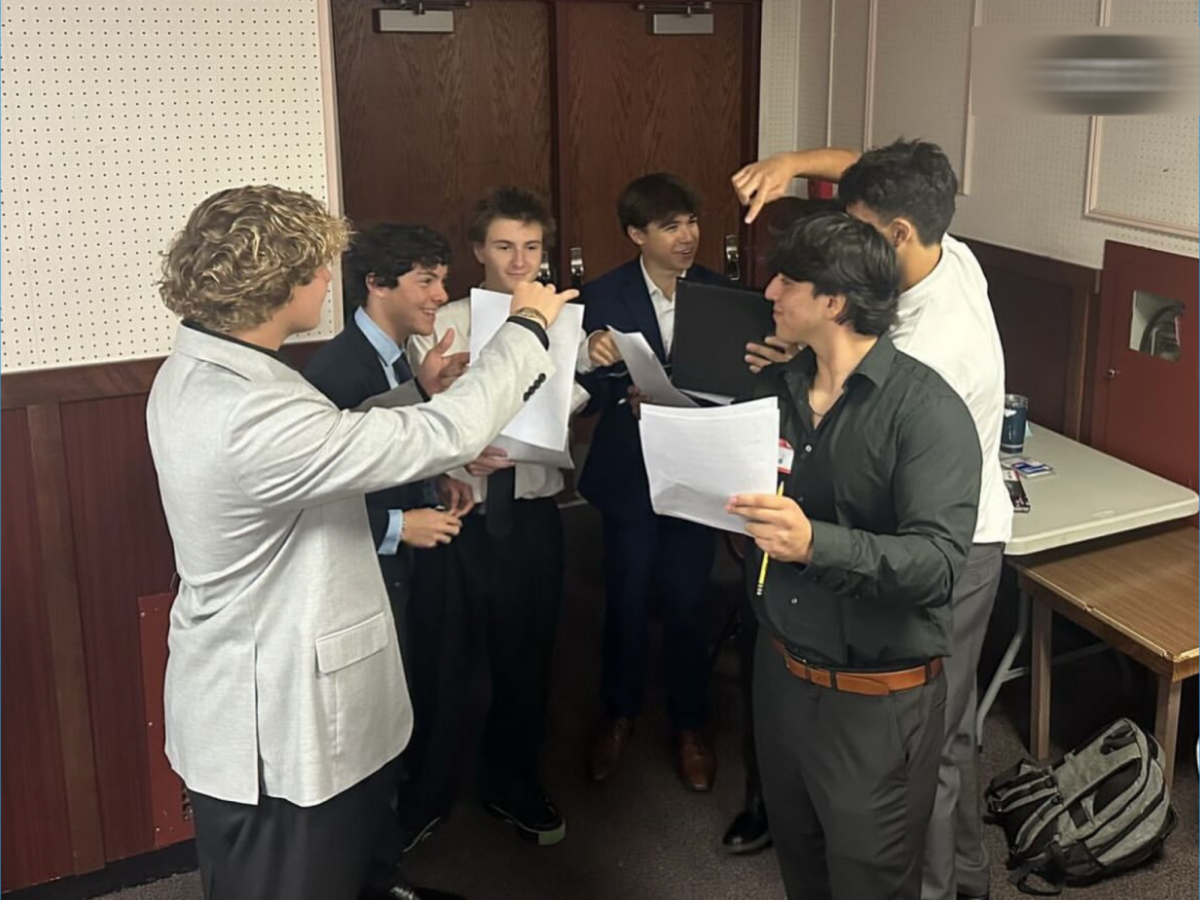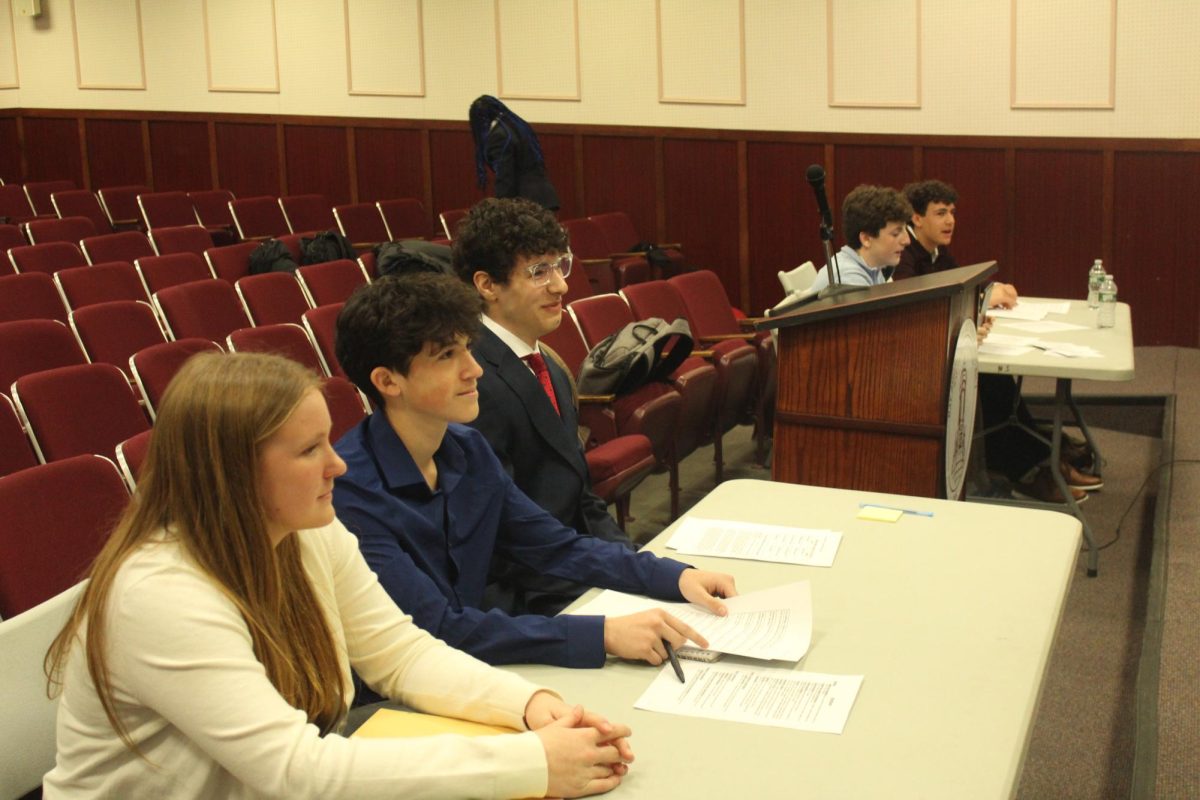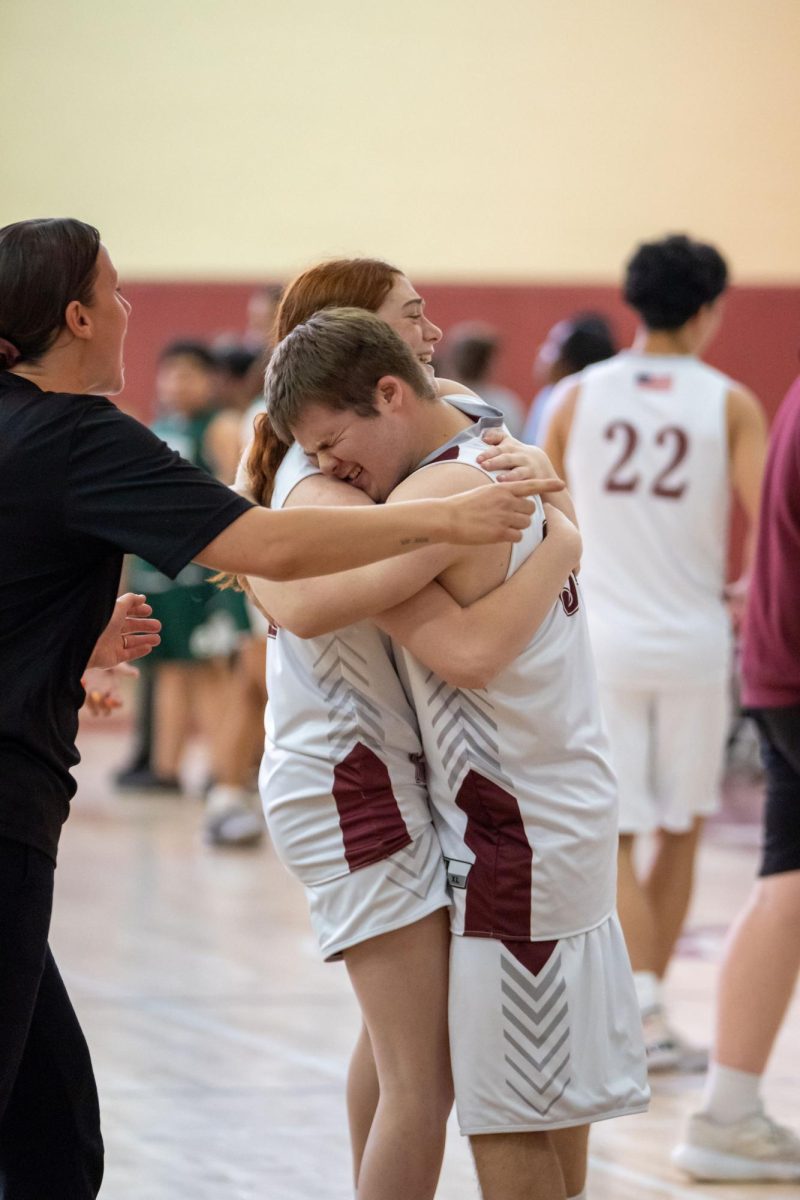
On Dec. 4, upperclassmen and chaperones enjoyed the play “Suffs” by Shaina Taub at the Music Box Theatre in New York City. The play followed the story of the Women’s Suffrage Movement through the perspective of activist Alice Paul and fellow members of the National Women’s Party, including Lucy Burns, Inez Milholland, Ruza Wenclawska and Doris Stevens. Juniors and senior students from IB History classes, Women’s Empowerment Club, and “Women’s Lives, Women’s Literature” classes were invited to watch the performance for a discounted price by the Bay Shore Schools Art Education Fund (BSAAEF), who acquired the tickets and even covered the cost for students that were unable to.
The trip was organized by Women’s Empowerment advisor, Lori Indemaio.
“Mrs. Indemaio told us about the idea and everyone got really excited,” junior and president of Women’s Empowerment, Kali Horton said. “She saw it as an opportunity to see a show that’s dedicated to our mission.”
A handful of chaperones accompanied students on the trip, one of which was Tamralynn Dorsa, an English and IB Theatre teacher.
“My experience as a chaperone was one of the best I’ve ever had,” Dorsa said.
“I really felt like all the students that were there were genuinely interested in the play [and] the topic.”
Rather than taking a coach bus, the trip consisted of going on the Long Island Railroad into Penn Station. Afterward, the groups walked from the station on West 31st Street to the Music Box Theatre on West 45th Street.
“It was a large group to take on a trip like that, but I feel like the students made it run smoothly,” Dorsa said. “We had responsible and respectful students with us, so it made it a much more enjoyable experience.”
The show began at 2 p.m. and ended around 4:30 p.m. with a 15-minute intermission between the two acts. It was immersive, detailed, and illustrated an accurate representation of the movement.
“The play was really empowering, it really encapsulated the Women’s Suffrage Movement in a short period of time,” junior Daylene Yglesia said. “They use audio all around the theater so it kind of brings you back in time, it makes you empathize with the movement.”
The play was extremely detailed, shedding light on the nuance and discrimination that are often overlooked when people think of the Women’s Suffrage Movement. Black women weren’t allowed to vote even after the passage of the 19th amendment that allowed women to vote. Alice Paul, the main person the play follows, famously told black activist and writer Ida B. Wells to wait her turn which was a powerful scene within the play.
“I like that [the play] didn’t paint the Suffragist Movement in a solely positive light, it really showcased how there was good and bad, especially regarding the racial insensitivity during the time,” Horton said. “It gave me a broader perspective.”
Although the movement is covered in Social Studies classes, there isn’t as much emphasis on women’s history as there is men’s. Women’s history is often merely a unit, while men’s history can encompass an entire course.
“A play like this is important for students to see because although we cover it in class, going to the play itself really added so much more to it,” Yglesia said. “It wasn’t just a short thing in history, it really was a movement, it took so much effort and contributions from all over the country.”
One quirk of the play was that the entire cast were women, even the few male roles in the play were portrayed by female actresses. This added a level of satire and irony when opinions of men were repeated by a female voice.
“I like that they did that because it really emphasizes the way men during this time perceived women,” junior Julissa Funes said.
Students that went on the field trip were from all different backgrounds and weren’t just women. It’s a common misconception that feminism is reserved for women, yet anyone can make themselves aware of the issues women face.
“I feel like it’s really important for everyone, not just women, to see that men aren’t the only people that have the power to make change,” Funes said. “It’s really important for women to be noticed too.”
After the show, students and chaperones got to ask questions to actresses Nadia Dandashi, who played Doris Stevens, and understudy Christine Heesun Hwang who knows the parts of six roles, as a way to deepen their understanding of the play.
“Suffs” gave important insight on what the movement was truly like and it’s clear that students gained a lot from the experience. Rather than sugar coating or summarizing the movement, the play balanced entertainment and education through its retelling.
“We have to teach the uncomfortable parts of history too, and we can’t just focus on the good things that we got, we have to look at the sacrifices it took to get those good things,” Dorsa said.












